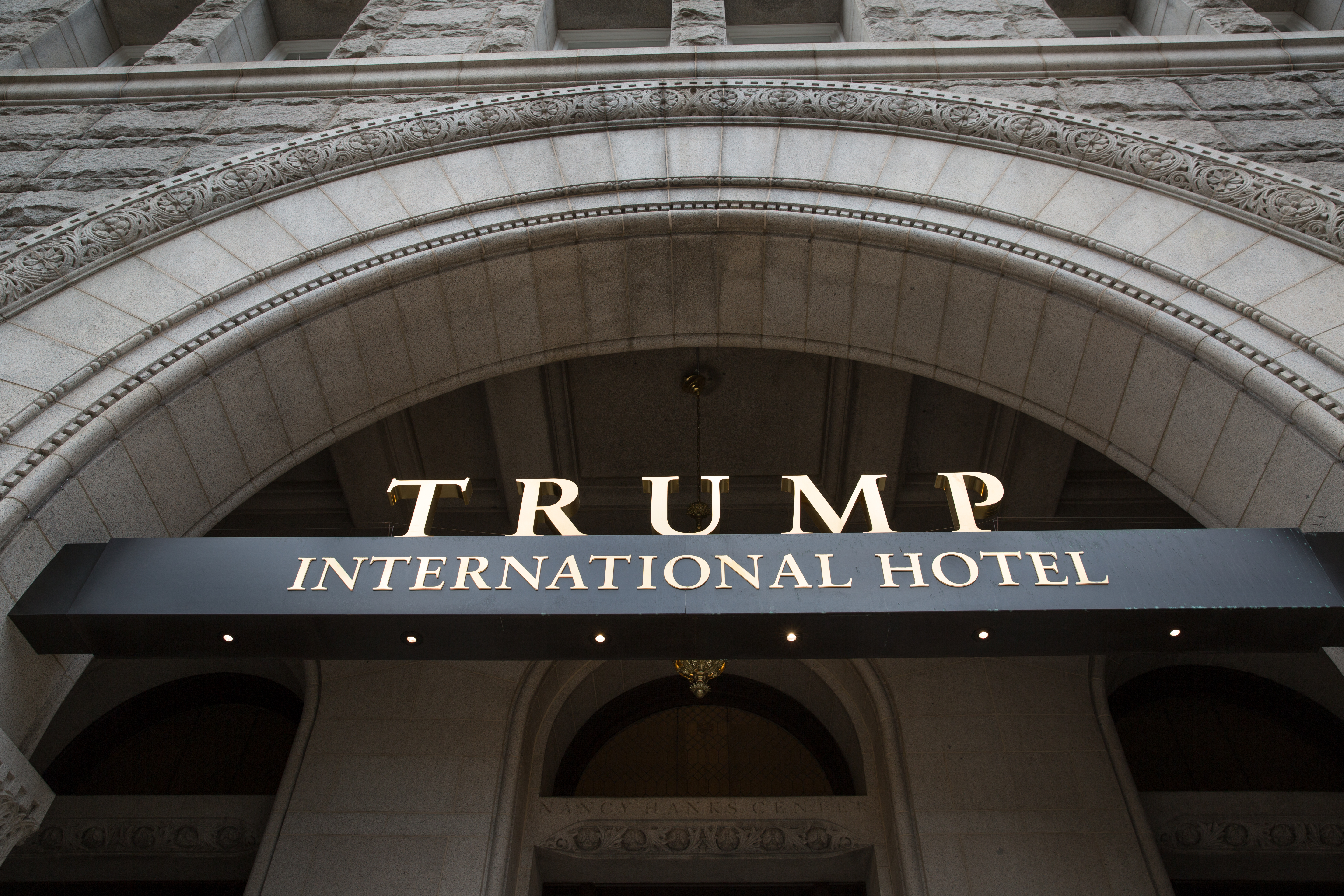Just days after announcing presidential candidacy, Trump helms real estate deal with Saudi company


A free daily email with the biggest news stories of the day – and the best features from TheWeek.com
You are now subscribed
Your newsletter sign-up was successful
Saudi Arabian real estate developer Dar Al Arkan announced Sunday that it had signed a deal with the Trump Organization to use the company's brand for a $4 billion project in Oman, The New York Times reported.
The deal — details of which were made public in a regulatory filing on the Saudi Exchange — was helmed primarily by former President Donald Trump himself, according to the Times. The deal will reportedly finance Trump-branded real estate projects throughout Oman, including "residential villas, a hotel, and a golf course."
The actual financial terms agreed to by Dar Al Arkan and the Trump Organization weren't revealed.
The Week
Escape your echo chamber. Get the facts behind the news, plus analysis from multiple perspectives.

Sign up for The Week's Free Newsletters
From our morning news briefing to a weekly Good News Newsletter, get the best of The Week delivered directly to your inbox.
From our morning news briefing to a weekly Good News Newsletter, get the best of The Week delivered directly to your inbox.
Reuters noted that Trump has had close relations with a number of Middle Eastern states both during and after his presidency. This includes the Saudi Arabian government itself, which invested $2 billion in a firm of Trump's son-in-law Jared Kushner after Trump's presidency ended. The Trump Organization additionally has a pair of golf properties in Dubai, United Arab Emirates — often considered the epicenter of wealth in the Middle East.
As the Times reported, though, the difference with this deal is that, by joining the Saudi venture, "Trump is also becoming part of a project backed by the government of Oman itself." This notably means that Trump "effectively [has] a foreign government partner that has complex relations with the United States."
As a result, Trump's deal could cause questions about a potential conflict of interest, especially given that he recently announced his third presidential campaign.
A free daily email with the biggest news stories of the day – and the best features from TheWeek.com
Justin Klawans has worked as a staff writer at The Week since 2022. He began his career covering local news before joining Newsweek as a breaking news reporter, where he wrote about politics, national and global affairs, business, crime, sports, film, television and other news. Justin has also freelanced for outlets including Collider and United Press International.
-
 Sepsis ‘breakthrough’: the world’s first targeted treatment?
Sepsis ‘breakthrough’: the world’s first targeted treatment?The Explainer New drug could reverse effects of sepsis, rather than trying to treat infection with antibiotics
-
 James Van Der Beek obituary: fresh-faced Dawson’s Creek star
James Van Der Beek obituary: fresh-faced Dawson’s Creek starIn The Spotlight Van Der Beek fronted one of the most successful teen dramas of the 90s – but his Dawson fame proved a double-edged sword
-
 Is Andrew’s arrest the end for the monarchy?
Is Andrew’s arrest the end for the monarchy?Today's Big Question The King has distanced the Royal Family from his disgraced brother but a ‘fit of revolutionary disgust’ could still wipe them out
-
 Currencies: Why Trump wants a weak dollar
Currencies: Why Trump wants a weak dollarFeature The dollar has fallen 12% since Trump took office
-
 TikTok: New owners, same risks
TikTok: New owners, same risksFeature What are Larry Ellison’s plans for TikTok US?
-
 Trump wants a weaker dollar, but economists aren’t so sure
Trump wants a weaker dollar, but economists aren’t so sureTalking Points A weaker dollar can make imports more expensive but also boost gold
-
 Leadership: A conspicuous silence from CEOs
Leadership: A conspicuous silence from CEOsFeature CEOs were more vocal during Trump’s first term
-
 The end for central bank independence?
The end for central bank independence?The Explainer Trump’s war on the US Federal Reserve comes at a moment of global weakening in central bank authority
-
 Why Saudi Arabia is muscling in on the world of anime
Why Saudi Arabia is muscling in on the world of animeUnder the Radar The anime industry is the latest focus of the kingdom’s ‘soft power’ portfolio
-
 Can Trump make single-family homes affordable by banning big investors?
Can Trump make single-family homes affordable by banning big investors?Talking Points Wall Street takes the blame
-
 TikTok secures deal to remain in US
TikTok secures deal to remain in USSpeed Read ByteDance will form a US version of the popular video-sharing platform
